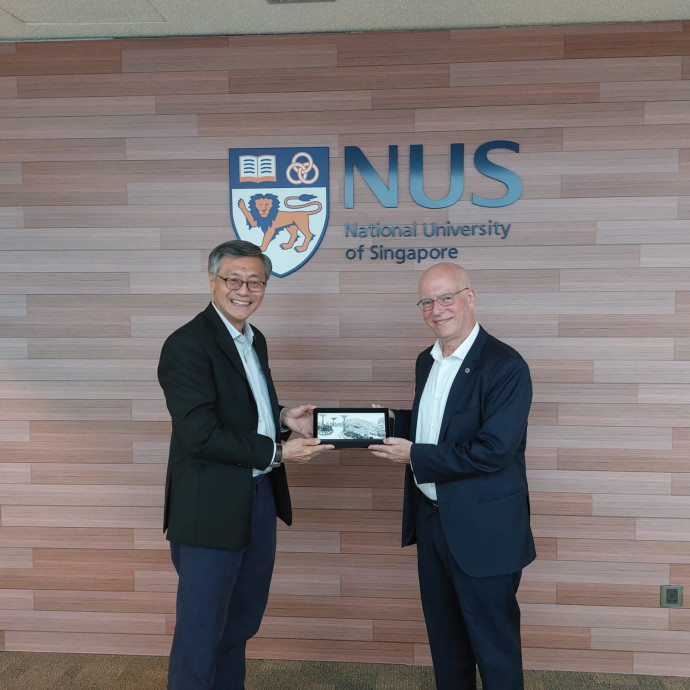A delegation of senior Tel Aviv University leadership, led by TAU President Prof. Ariel Porat, met in Singapore this week with top university and government leaders to explore new avenues for joint research collaboration in cyber security, AI, aging, climate change, medicine and other fields.
Tel Aviv University has long-held relationships with institutions in Singapore under the framework of the decades-long bilateral relations between Israel and Singapore. The countries, both recognized as world leaders in innovation and technology, have an extensive record of collaboration in R&D, commercial business, arts and culture, and beyond. The TAU delegation noted that the visit was an important step in the University’s strategic focus on ramping up academic ties with leading global institutions.
Professor Porat visited Singapore to participate in the International Academic Advisory Panel (IAAP) to the Singapore Government on higher education. The presidents of other top global universities such as the University of Oxford, McGill University, Australian National University, and the University of Tokyo were among those in attendance, as well as industry leaders.

The TAU delegation met with leading Singaporean universities and government institutions responsible for academic research, including the National University of Singapore, Nanyang Technological University, the Cyber Security Agency of Singapore, and the National Research Foundation.
The visit focused on cyber security research collaboration, one of TAU’s strengths. It came ahead of this year’s Cyber Week hosted at TAU, one of Israel’s largest cyber security summits. In 2015, TAU forged its first joint cyber research program with Singapore. The Blavatnik Interdisciplinary Cyber Center at TAU, a key engine of Israel’s prowess in the field with over 200 researchers from different disciplines, and the Cyber Security Agency of Singapore oversee the collaboration. The program has since expanded to focus on a range of issues, including mobile app security, new anti-phishing technology, and the cyber security of smart cities.
TAU President Prof. Ariel Porat: “As Israel’s top university for innovation and entrepreneurship, Tel Aviv University sees great potential in augmenting collaborations with institutions in Singapore, which is recognized as a fellow powerhouse in emerging and cutting-edge technologies.”
TAU Vice President of International Collaboration Prof. Milette Shamir: “This trip represents another significant step in TAU’s strategic efforts to expand academic ties in the global arena. Singapore is at the vanguard of many industrious and inspiring achievements. Together with our partners in Singapore, we look forward to driving further international collaboration to benefit students and scientific discovery.”
Blavatnik Interdisciplinary Cyber Research Center CSO Dr. Yaniv Harel: “As the challenges in cyber security continue to intensify, collaboration between countries, sectors, and people is needed to safeguard the systems upon which society relies. As a global player in cyber research, we’ve demonstrated the joint achievements that our teams produce, and we look forward to forging new ways to solve complex cyber security issues with partners in Singapore.”
